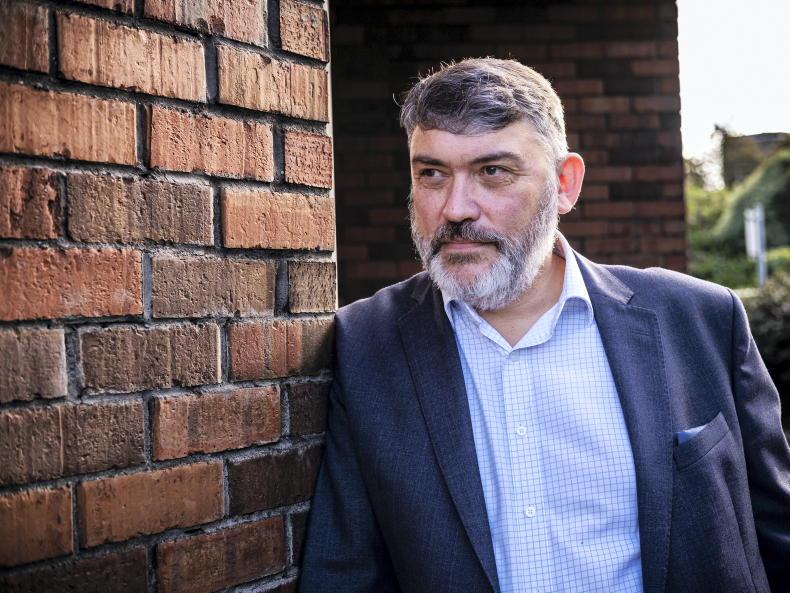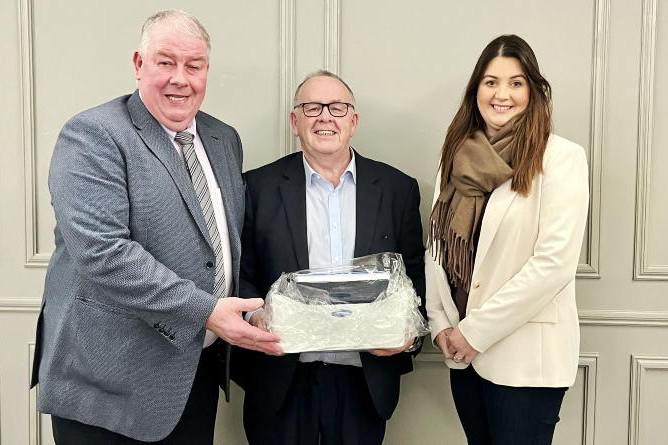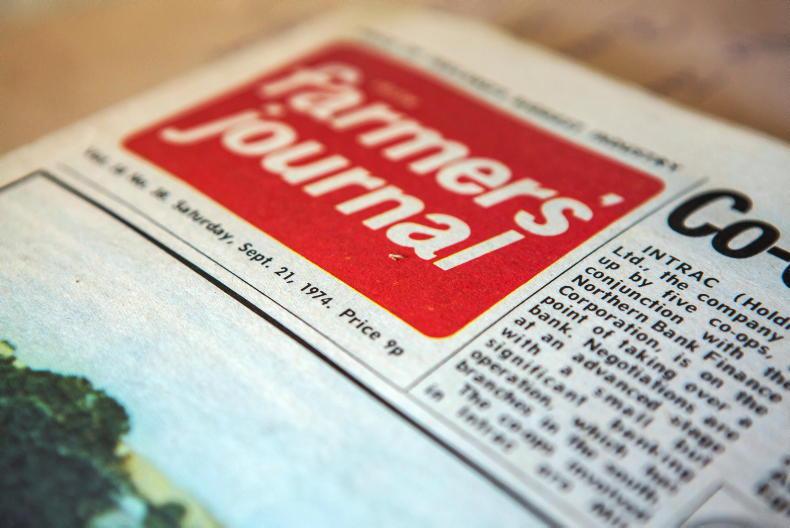Macra should have five times its current memberships of 11,000 people, according to its CEO Michael Curran.
Curran hails from a 57ac farm in Waterville, Co Kerry. He studied economics and political social science in Galway before joining the army in the early 1990s.
He spent 24 years in the army, including three tours of duty overseas, before becoming CEO of the Chartered Institute of Logistics and Transport. He describes himself as a logistics man and a people person, saw the Macra CEO job advertised and thought it would be a challenge and here he is.
He told the Irish Farmers Journal this week that Macra is very strong on agriculture but, predominantly, it is a rural youth organisation with 11,000 members “and not all of our 11,000 members are employed in agriculture”.
“I think a lot of us that grew up in rural Ireland, a lot of us couldn’t wait to get out of it and then we learned that maybe the grass isn’t as green on those faraway hills as we thought it was.
“I see Macra as a possible cohesive force in bringing rural Ireland back together again, especially coming out of COVID-19,” he said.
Macra na Feirme rebranded to be called Macra at Ploughing 2022, but Curran says that there will be no less focus on farming as a result of the change.
“Our company name is still Macra na Feirme, we haven’t changed that. We’ve just reflected what people have always called us. The whole idea of the rebrand was to find out what our members wanted, and it was a big change to drop ‘na Feirme’, it’s not signalling a walk away from farming.
“Because being honest, farming is the very centre of rural Ireland and without farming in rural Ireland you have a proliferation of holiday homes and that’s it.”
Young farmers
He said farming is Macra’s strongest strand at the moment and that the organisation is working on a scheme for young farmers where they can get cheaper access to unsecured finance.
“We’ve more farmers over 80 than we do under 35 – that’s just bonkers, especially when you look at a sector that is worth nearly €15bn a year in exports,” he said.
On policy, he said the EU has told people what to do for years. “Not in a bad way. For example, drain your land, clear the hedges. That was policy. Now we’re seeing a reversal. When we change policy like that, you will build distrust. You told me to drain the land, now you want me to flood it again. It’s not an easy job to do. It’s a very hard thing to do.”
He said young farmers were ignored in the CAP, admitting that Macra, and Ireland, didn’t push hard enough for reform for young farmers. “There’s no way around it. We never pushed hard and fast enough for young farmers,” he said.
In reference to the Food Vision dairy and beef groups, he said the farming sector is talking about taking land out of use and reducing herd numbers.
“All that’s going to do is disadvantage young farmers even more. All you’re going to do is drive the price of land further north.
“It’s almost like we assume that they will be given land anyway as opposed to being proactive,” he said, adding that it is not good enough.
He said Ireland is not looking at the replacement rate of Irish farming. “We’ve got young people starting out and they’re competing in financial terms against people who are so established, but there is more we can do.
“CAP was a missed opportunity, there’s no point saying otherwise.
“If we end up with a retirement scheme on its own, without a succession scheme, all we are going to do is take land out of production, which is madness,” he said.
A new strategic plan which Curran hopes to be ready by Christmas will map out the future for the association.

When asked if he plans on having more clubs in the west and northwest, where there are less clubs compared to Munster and Leinster, he hopes that Macra will be represented everywhere in future.
“And not just token representation,” he said, adding that it is a massive opportunity.
Macra needs to do more for rural young people, he insists. “We’re trying to set up a national support network for rural dwellers, a one-stop shop initially for people who need assistance. We’re exploding the myth around mental health that it isn’t something you should talk about when it is something that everyone should talk about.”
The network would work across the board by supporting people who need assistance not just for mental and physical health issues but for someone who wants to pick up the phone to find out how they can apply for an unsecured loan.
Relevance
“Macra is getting more relevant and we have to get more relevant again. I think there is a need for a loud, unified voice for rural Ireland. The future belongs to the young, those that are older are only borrowing it in trust,” he said. “If the average age of farmers keeps going as it’s going, it’s [farming] going to be extinct. And by the time it becomes extinct, it’s too late. We’re just going back to growing rushes again.”
Curran is on a five-year contract and wants to see Macra grow in that time period, and not just for the sake of growing. “Every time we have thought big in Ireland it has worked. Thinking big is Ardnacrusha, rural electrification, free education, we’ve achieved it.
“We have 11,000 members, we should have five times that. It’s a case of re-engaging with rural Ireland, pushing our brand out further. It’s not a new era, because that makes it sound like you’re throwing out the old era.
“We have a quarter of a million people that were members of Macra and very few people have bad memories. We’re part of rural Ireland, we’re part of the fabric. Is it ambitious? Not really, no, to say that we go to 50,000.”
Is 50,000 achievable?
“With a good wind, yes. If we’re not ambitious, you’re just going to settle. I’m not a fan of settling.”
Favourite book?
Lord of the Rings.
Favourite film?
Apocalypse Now.
Hobbies?
I’m involved with scouts. I’m a scout leader.
Lyons or Barry’s?
Lyons.










SHARING OPTIONS